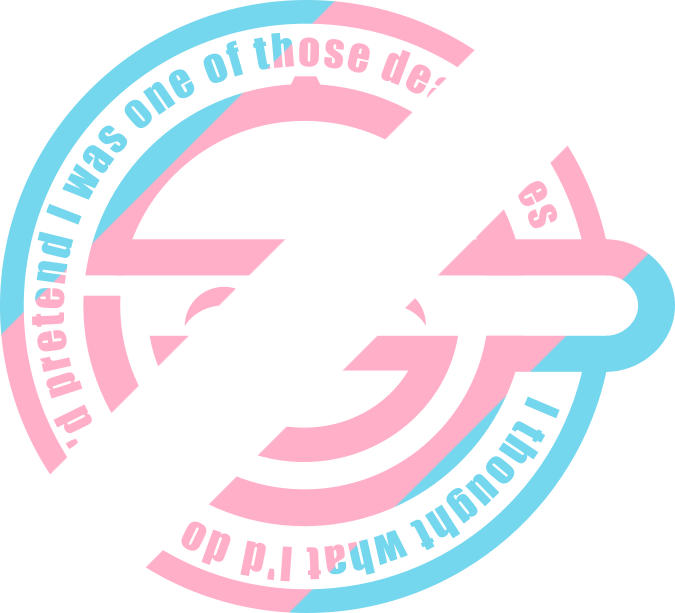i’d still take this over the ett/en thing in swedish. basically, “ett” and “en” both mean “a” if they come before the word, and “the” if they get smashed onto the end of a word. (e.g., “ett apotek” means “a pharmacy”, but “apoteket” means “the pharmacy”; “en hund” means “a dog”, but “hunden” means “the dog”.)
but despite “ett” and “en” meaning the same thing, they aren’t interchangeable. some words are “ett” words, while others are “en” words, and you just have to remember which ones are which.
to further complicate things, there are some words that can end with “et” or “en”, but each ending means something different. this typically happens with “ett” words using “en” for the plural forms of the word. for example, “barn” means “child”, “ett barn” means “a child”, “barnet” means “the child”, but “barnen” means “the children”. (it’s worth also mentioning that “barn” means either “child” or “children”, depending on the context.)
Lots of languages have gendered nouns, though. Three genders isn’t uncommon in European languages and in most cases you just have to learn the nouns with their genders.
you’re right that lots of other languages have gendered nouns. however, swedish nouns are not gendered in the “traditional” sense. i.e., it is not the case that some nouns are “masculine” and others are “feminine”.
i think the wikipedia page does a good job of explaining it:
Nouns have one of two grammatical genders: common(utrum) and neuter (neutrum), which determine their definite forms as well as the form of any adjectives and articles used to describe them. Noun gender is largely arbitrary and must be memorized; however, around three quarters of all Swedish nouns are common gender. Living beings are often common nouns, like in en katt “a cat”, en häst “a horse”, en*fluga* “a fly”, etc.
edit: i wanted to clarify that this isn’t some major gripe i have with the language. i think all spoken languages are bound to have their own quirks and that’s okay, it can just make certain things a bit tricky when learning the language. as a whole, i think swedish is a very nice language
Swedish used to have masculine and feminine gendered nouns historically - and some dialects still do - but they were simplified into two grammatical genders, utrum and neutrum, just as your link says. (There are remnants though, for example “vad är klockan?” “hon är halv fyra”). Masculine and feminine were just squashed into the “utrum” gender, basically, and neutrum is neuter.
thank you for the explanation. that helps to clear things up a bit and it’s also nice to have some context for why things are the way they are in the language. i had always been told that the “ett/en” thing was just an arbitrary quirk of the language, so it’s nice to get a more concrete explanation of it.
the example you gave was also super helpful. i found it confusing that sometimes “hon” meant “it”. i had always been told (in casual conversations) that swedish wasn’t a gendered language, so that whole thing was quite confusing until now.
Then it might also be useful to know that in these cases, it’s also correct to say “den är halv tio” which might be a safer route for non-native speakers.
Kudos on you learning swedish though, it’s not always easy or completely logical but coming from English a lot of things should come for free.
deleted by creator
Simple - one must strive not simply to be A shit but to be THE shit - The plutonic ideal of shit, the perfect shit from which all other shits are derivitive. Anything less is a failure. So following this logic.
“You ain’t shit” = You are invalid from the rubric, so below par as not to be mentionable.
“You are shit” = Acknowledgement that you are shit of average or middling status but with the implications that vast improvement is nessisary because you are still a failure.
“You are not the shit” = More directed pointed reminder that you are far below the goal of being THE shit and maybe are overestimating yourself.
The complimentary nature is recessive requiring both positive and THE qualifiers rather than any negative or A qualifier.
Learning slang, in which words aren’t meant literally, is pure memorization and no more difficult in one language than another.
I mean German isn’t any easier: Umfahren means to run over someone And Umfahren means to drive around something
Swedish:
Infart, utfart, din fart and just

That’s all, I’m done.

Not to be one of those people, but the poster you sent is actually not Swedish. The first sentence is either Danish or Norwegian. You’re still right about the word fart meaning something different in Swedish though.
When pronunciation matters!
Spanish:
“Me cago en la leche” I shit on the milk -> something bad happened, and I’m angry.
“Eres la leche” You are the milk -> you are great.
Damn, in English we can say one “shit the bed,” but I might need to adapt this Spanish phrase and start saying I shit the milk.
Itt: monolinguist native english speakers who thinks a completely common concept is exclusive to english.
I feel like “Tonality” is a big part of it.
English: the most junkiest language I’ve learned until now. And it’s unfortunately the most prominent around the whole world, until the tragic downfall of the United States of America arrives.
Don’t forget most places speak English because the UK colonized them.
There’s also this too. Shucks.
“Most junkiest” is a redundancy.
The junkiest. Here’s my correction.
EnglishAmerican Culture.The structure of those sentences are very straightforward. The cultural zeitgeist that caused that one iteration to become positive in meaning is just random chance.
Like nested replies on Reddit that all say the same thing. All of them are being upvoted, except one of them is randomly being downvoted into oblivion.
Cat.
Clearly by getting their shit together
Reminds me of a funny performance about the topic by a commedian named ISMO. He does a lot of things with the English language.
His bit on ass is funny as hell too
Its basically ripped from this guys act.
Came here to share Ismo too!
They generally leave the shitty bits to more advanced learners.
shit and fuck are the most versatile words
Fuck that shit.











